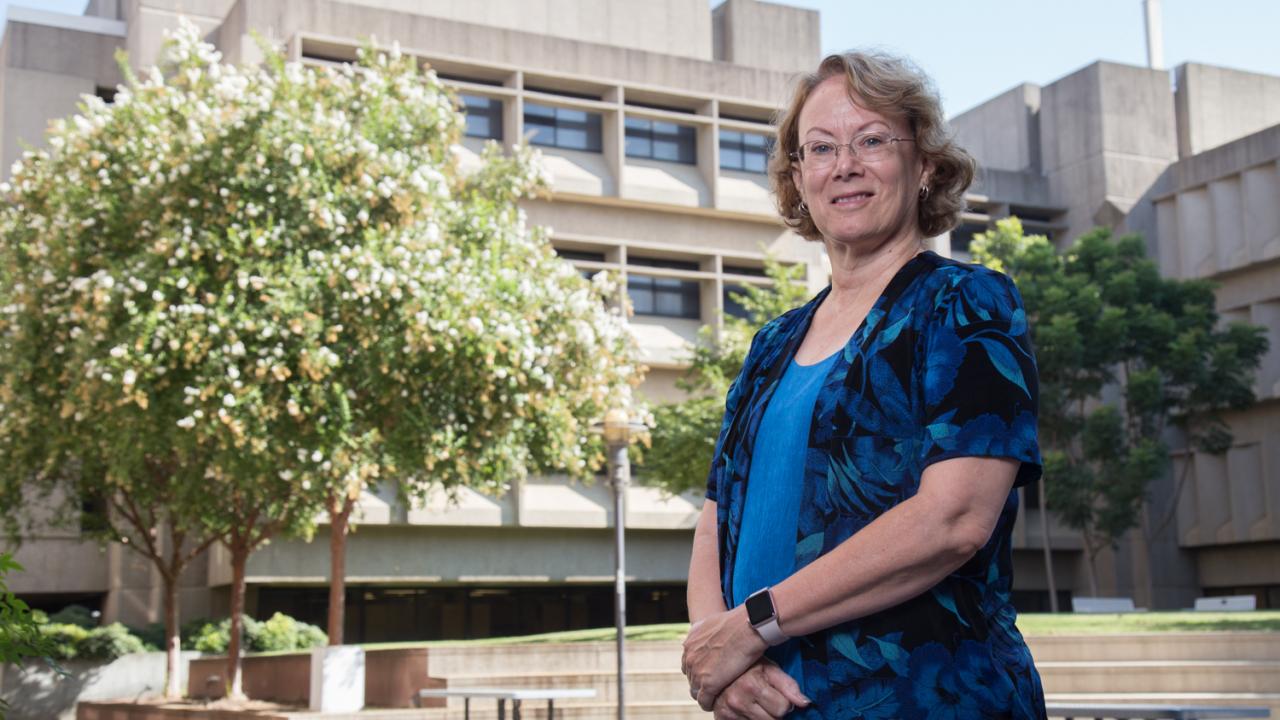
Microbiologist Michele Igo Named Associate Dean of Undergraduate Academic Programs
Quick Summary
- Michele Igo is a professor in the Department of Microbiology and Molecular Genetics
- Her previous research focused on bacteriology but recently she shifted to educational research
- With colleagues, she's developing an AI system meant to improve cognitive engagement in students
For seven years, Professor Michele Igo has taught BIS 2A, an undergraduate introductory course for students in the College of Biological Sciences. With as many as 500 students in each class, it is Igo’s task to provide new students with a foundation in modern biology.
But how can professors accurately measure comprehension of course materials with so many students? Like many professors, Igo wants her students to critically engage with course materials rather than just regurgitate definitions and theories. But sometimes, students face barriers when it comes to engagement. In education, one size doesn’t fit all.
Igo, who holds an appointment in the Department of Microbiology and Molecular Genetics, and her colleagues are working to improve the learning environment at UC Davis, with projects focused on developing software to promote student engagement and to create a more inclusive educational environment.
Igo’s educational research makes her a natural fit for college leadership, and recently, she was named associate dean of undergraduate academic programs for the College of Biological Sciences, a four-year appointment.
“Dr. Igo has provided meaningful research experiences and mentorship for many life sciences students, and she has been a leader in our educational programs,” said College of Biological Sciences Dean Mark Winey. “We’re excited to have her join the ranks of the college leadership and look forward to her contributions in this the position.”
Igo replaced Susan Keen, Department of Evolution and Ecology, who will continue lecturing and conducting her own educational research at UC Davis.
“I will miss the chance to interact, as part of the job, with so many faculty and staff colleagues in the college and across the campus,” said Keen. “Revising policies and processes in ways that improve student academic life is not always easy, but it is very satisfying. It was also great to meet so many students and to learn about their lives, ambitions and career paths.”
“One thing I’ve always admired about Susan is the students come first for her,” said Igo. “And I agree with that ideology.”

From bacteria to better classroom instruction
Igo pivoted to educational research a few years ago following her investigation of Xylella fastidiosa, a bacterium that causes Pierce’s Disease of Grapevines. The bacteria is transferred to grapevines via the glassy-winged sharpshooter, a large leafhopper insect. In the early 2000s, when Igo joined a team of scientists at UC Davis to combat the disease, more than 1,100 acres of California grapevines were already infested. Igo’s research focused on identifying proteins on the bacterial cell’s surface and to develop strategies to interfere with the bacterium’s ability to invade susceptible host plants.
“X. fastidiosa is responsible for a number of diseases in crops important to the California agricultural economy, including almonds and grapes” said Igo. “It has also been identified as the causative agent of a fatal disease of citrus and coffee in South America and of olives in Italy. Understanding how this pathogen evolves to infect new plant species is critical if we are to prevent new diseases from appearing in California.”
In addition to her scientific research, Igo has had a long-standing interest in developing new methods for increasing students’ cognitive engagement in the classroom. A major focus of her current educational research involves developing new computational tools that detect the degree to which students engage cognitively and meaningfully with online course materials. This project is a collaboration with Marc Faccioti, an associate professor of biomedical engineering at the UC Davis, Kobi Gal, an associate professor of software an information systems engineering at Ben-Gurion University, and David Krager, a professor and member of the Computer Sciences and Artificial Intelligence Laboratory at the Massachusetts Institute of Technology.
The online course material used for this study is “BIS 2A: Introductory Biology,” which is continuously evolving open access textbook written by the BIS2A instructors. Before each lecture, students are asked to highlight and comment on three areas of an assigned reading assignment. In a small classroom setting, it’s possible for professors to read the comments and evaluate not only whether student comments are correct, but also whether the students are engaging with the content critically and then incorporate their insights into their next lecture.
This is a much more difficult in a larger classroom environment.
The goal of Igo and her colleagues’ current project is to develop an artificial intelligence system that can evaluate the work of students in a large classroom or online setting and interact with individual students as they read course materials. Eventually, the hope is the system will be able to prompt students to engage with content more deeply if they’re only giving surface-level answers.
Igo’s role in the project is to teach the computer how to differentiate between such comments. On top of ensuring that students engage with the material, the researchers hope the AI system will help them identify struggling students earlier in the quarter, so professors and teaching assistants can intervene and help before the first midterm.
Another goal is to use the AI system to identify communications barriers sometimes faced by students who speak English as a second language. This includes constantly evaluating the textbook’s prose and eliminating usages of slang and jargon.
“When you’re teaching at the scales we are, particularly in large enrollment courses like BIS 2A, the challenge is figuring out how to help the individual student,” said Igo. “How can we identify what the issues are? Artificial intelligence is an obvious way to go.”
